
Wow, check out this amazing extended illustrated preview of Bronson Pinchot’s narration of Poe’s Detective: The Dupin Stories published by AudioGo!
The illustrations, by the wau, are by Rick Altergott.
Posted by Jesse Willis

Wow, check out this amazing extended illustrated preview of Bronson Pinchot’s narration of Poe’s Detective: The Dupin Stories published by AudioGo!
The illustrations, by the wau, are by Rick Altergott.
Posted by Jesse Willis

After reading Cory Doctorow’s glowing review of Poe’s Detective: The Dupin Stories last year I added it to my list of audiobooks I just had to listen to.
I’m very, very excited at the prospect!
Poe’s Detective: The Dupin Stories
By Edgar Allan Poe; Read by Bronson Pinchot
4 CDs – Approx. 5 Hours [UNABRIDGED]
Publisher: AudioGO
Published: March 15, 2011
ISBN: 9781609981624
Edgar Allan Poe is the undisputed originator of the Detective story. His brilliant, imaginative sleuth C. Auguste Dupin set the stage for eccentric, logic wielding investigators like Sherlock Holmes and Hercule Poirot. This audio collection of Poe’s three Dupin stories also includes one non-Dupin detective tale, Thou Art the Man. It features celebrity narrator Bronson Pinchot. The story titles are: “The Murders in the Rue Morgue“; “The Mystery of Marie Rogêt“; “The Purloined Letter“; and “Thou Art the Man.”
Posted by Jesse Willis

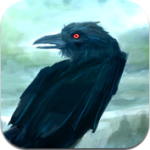 There’s a terrific illustrated, and partially animated, audiobook app available free in the Apple App store. Made by vNovel Interactive The Raven by Edgar Allan Poe features a solid reading (by Domien de Groot), some unnecessary sound effects (rapping, tapping, creaking, and cawing), and some of the most gorgeous illustrations (by Vladimir Rikowski) of the poem that I’ve ever seen.
There’s a terrific illustrated, and partially animated, audiobook app available free in the Apple App store. Made by vNovel Interactive The Raven by Edgar Allan Poe features a solid reading (by Domien de Groot), some unnecessary sound effects (rapping, tapping, creaking, and cawing), and some of the most gorgeous illustrations (by Vladimir Rikowski) of the poem that I’ve ever seen.
There’s an iPad version too, it’s HERE.
Experience “The Raven”, as it comes to life, like you’ve never seen it before: an innovative double play mode interactive book, featuring a world-class audio performance of Edgar Allan Poe’s classic poem.
Go back to the place where it all began, in the midst of a dreary night – the kind, the ghosts of our past (that come back to haunt us) find irresistible. Relive this poetic, frightening and sad tale of love and soul forever lost, in a charming new light.
With a powerful original musical score, that resonates deep within, and contemporary original art, that rivals some of the most expressive illustrations of the past – this is an experience you will never forget.
App trailer:
Musical score composed by Zoltan Csordas:
Incidentally, the app isn’t fully featured, there’s no rewind feature, only a pause. If you want to restart, or return to the main menu, shake your iOS device.
Posted by Jesse Willis

 The SFFaudio Podcast #175 – The Outsider by H.P. Lovecraft, read by Wayne June. This is a complete and unabridged reading of the short story (19 minutes) followed by a discussion of it. Participants in the discussion include Jesse, Julie Hoverson and Fred Godsmark of Audio Realms.
The SFFaudio Podcast #175 – The Outsider by H.P. Lovecraft, read by Wayne June. This is a complete and unabridged reading of the short story (19 minutes) followed by a discussion of it. Participants in the discussion include Jesse, Julie Hoverson and Fred Godsmark of Audio Realms.
Talked about on today’s show:
the greatest audiobook narrator of H.P. Lovecraft stories ever (Wayne June), you fall in love with this story in high school, it blew Julie’s mind, Fred read The Outsider early, Algernon Blackwood, horror, re-read or re-listen, Julie’s oblique audio drama adaptation, is the main character female?, we’re all outsiders, filming The Outsider, The View From Within, The Lovecraft Five (includes Richard Pickman and C. Auguste Dupin), born and raised in a tomb, zombie or revenant or disfigured person, he’s a rotty person in need of love, Edgar Allan Poe, how could you film it?, The Sixth Sense, the wonderful ambiguity, The Temple by H.P. Lovecraft, “Castle Arrgh”, The Dark Worlds Of H.P. Lovecraft, Volume 3, The Horror At Red Hook, Herbert West: Re-Animator, The Statement Of Randolph Carter, the comedic musical stage play of Herbert West: Re-Animator, Evil Dead: The Musical, Evil Dead 2, Wayne June is a treasure, Michael Moorcock, Blood Memories, Gene Simmons, The Dunwich Horror and The Call Of Cthulhu, Johnny Winter, Ghoul by Brian Keene, AudioRealms.com, Castaways, The Rising, Darkness On The Edge Of Town, Gathering Of Crows, Roanoke, “CROATOAN”, the incredibly reader Jenny Colvin, long staircases in The Outsider go up and the The Rats In The Walls they go down, a metaphorical reading, The Crawling Chaos, The Evil Clergyman (aka The Wicked Clergyman), engagement with the imagination, T.E.D. Klein, S.T. Joshi, we’re not in the know, 4 track recorder, Fred fell into the audio business, amateur vs. professional, reverb diaper pail, toilet echo, spoken word LPs, Caedmon, David McCallum, growing up vs. growing old, YouTube is incredible, Julie’s adaptation of The Temple, paranormal romance, The Dunwich Horror, Dean Stockwell, Lavinia’s not crazy, fathering the child of an elder god may or may not drive you crazy, “oh no I’ve discovered I’m related to fish-men”, The H.P. Lovecraft Historical Society adaptation of The Shadow Over Innsmouth, Robert E. Howard, Lair Of The White Worm by Bram Stoker, The Dark Worlds Of H.P. Lovecraft, Volume 1 is a consistent best seller, The Double Shadow by Clark Ashton Smith, The Empty House, The Whisperer In Darkness, August Derleth, People Of The Dark, The Haunter Of The Ring, DarkRealmsAudio.com, Twitter, an hour per minute of finished audio, recording in your living-room, Dracula, Donald Pickering, Jack London, adding hiss, room tone, put noise in?, The Yellow Wallpaper.
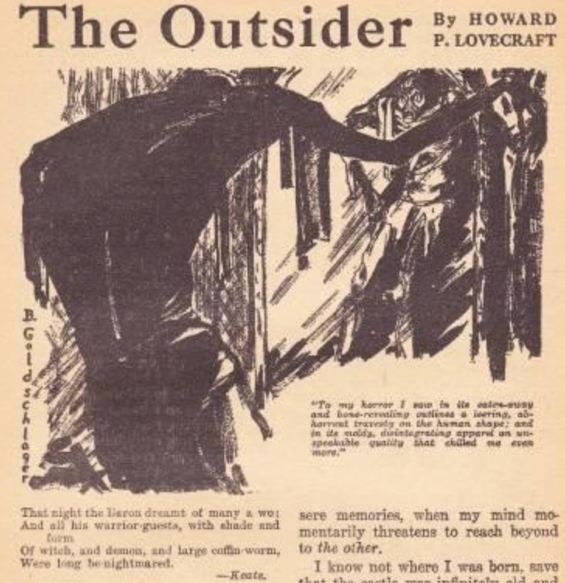
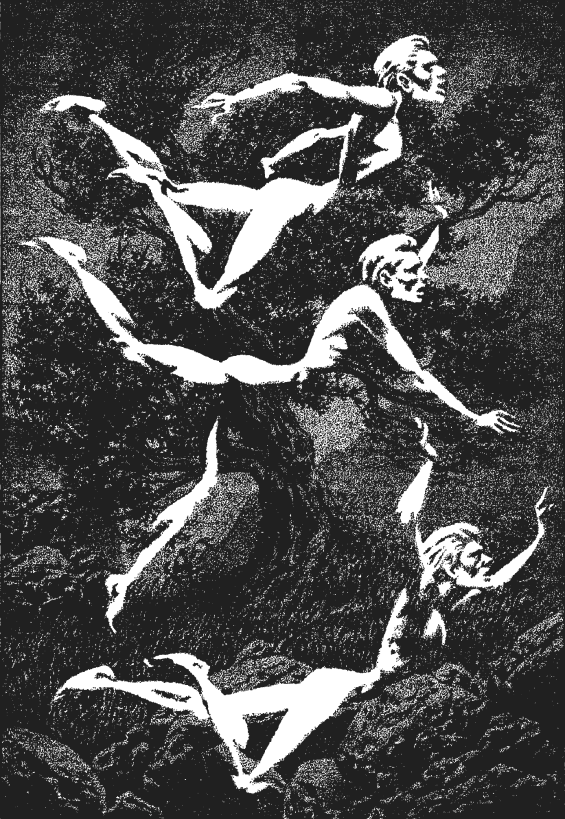
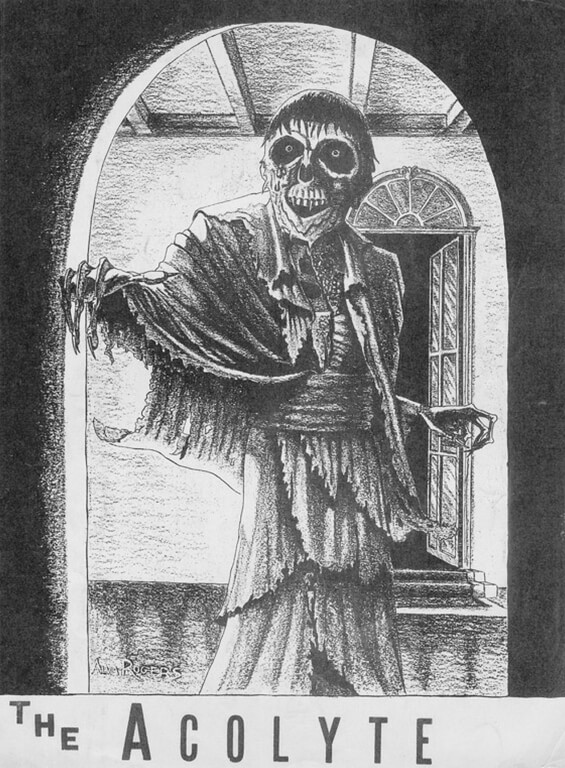

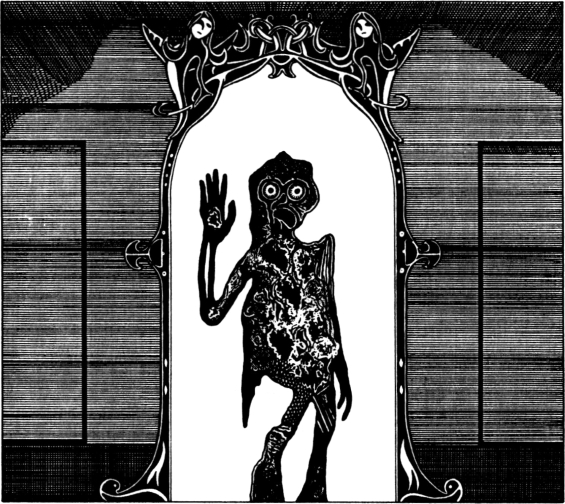
Posted by Jesse Willis

Recently arrived, and currently being soaked in through my skin and ears, is this giant collection of weird fiction. Assembled from a list of stories found in H.P. Lovecraft’s essay Supernatural Horror In Literature, it is a collection of well known and obscure classics by authors that H.P. Lovecraft loved.
Looking at the table of contents I noted that I’d already read several of the stories in this collection – including The Turn Of The Screw (we did a podcast about that one), the engimatic Christmas horror Markheim, the scientific ghost tale What Was It?, the unutterably creepy and horrific The Voice In The Night very recently, and many years ago, perhaps in high school, The Yellow Wallpaper. But even though I’ve read some of these stories already I’m still very excited. Each of the stories seems to be preceded by some relevant words by Lovecraft himself – and at the very least I will be listening to the mini-introductions to those stories I am well familiar with.
Until then I will content myself in listening to the unknown ones. For example, the frightful first person narrative of Who Knows? by Guy de Maupassant is thrilling and wondering me in the exact same way The Horla almost exactly one year ago. It’s wonderful!
H.P. Lovecraft’s Book Of The Supernatural
Edited by Stephen Jones; Read by Bronson Pinchot, Stephen Crossley, Davina Porter, Madeleine Lambert, Mark Peckham
MP3 DOWNLOAD – Approx. 16 Hours 44 Minutes [UNABRIDGED]
Publisher: AudioGo
Published: August 1, 2012
Written by arguably the most important horror writer of the twentieth century, H.P. Lovecraft’s 1927 essay Supernatural Horror in Literature traces the evolution of the genre from the early Gothic novels to the work of contemporary American and British authors. Throughout, Lovecraft acknowledges those authors and stories that he feels are the very finest the horror field has to offer: Washington Irving, Edgar Allan Poe, Henry James, Rudyard Kipling, Bram Stoker, Robert Louis Stevenson, Guy de Maupassant, Ambrose Bierce, and Arthur Conan Doyle, each prefaced by Lovecraft’s own opinions and insights in their work. This chilling collection also contains Henry James’ wonderfully atmospheric short novel…The Turn of the Screw. For every fan of modern horror, here is an opportunity to rediscover the origins of the genre with some of most terrifying stories ever imagined.
Here’s the table of contents:
Introduction by editor Stephen Jones – Approx. 7 Minutes
Notes on Writing Weird Fiction By H.P. Lovecraft – Approx. 11 Minutes
The Tale of the German Student by Washington Irving – Approx. 14 Minutes
Markheim by Robert Louis Stevenson – Approx. 49 Minutes
Who Knows? by Guy de Maupassant – Approx. 34 Minutes
The Invisible Eye by Erckmann-Chatrian – Approx. 41 Minutes
The Torture by Hope by Villiers de l’Isle Adam – Approx. 15 Minutes
Ms. Found in a Bottle by Edgar Allan Poe – Approx. 29 Minutes
What Was It? by Fitz-James O’Brien – Approx. 34 Minutes
The Middle Toe of the Right Foot by Ambrose Bierce – Approx. 24 Minutes
The Turn Of The Screw by Henry James – Approx. 4 Hours 52 Minutes
The Dead Smile by F. Marion Crawford – Approx. 57 Minutes
The Wind In The Rose-Bush by Mary E. Wilkins-Freeman – Approx. 38 Minutes
The Yellow Wallpaper by Charlotte Perkins Gilman – Approx. 36 Minutes
The Recrudescence of Imray by Rudyard Kipling – Approx. 30 Minutes
The Hands Of Karma (Ingwa-banashi) by Lafcadio Hearn – Approx. 11 Minutes
The Burial Of The Rats by Bram Stoker – Approx. 1 Hour 7 Minutes
The Red Lodge by H.R. Wakefield – Approx. 35 Minutes
The Captain Of The Pole-Star by Sir Arthur Conan Doyle – Approx. 1 Hour 6 Minutes
The Villa Desiree by May Sinclair – Approx. 28 Minutes
The Voice In The Night by William Hope Hodgson – Approx. 36 Minutes
Novel of the White Powder by Arthur Machen – Approx. 48 Minutes
Posted by Jesse Willis

 The SFFaudio Podcast #174 – The Temple by H.P. Lovecraft, read by Mirko Stauch. This is a complete and unabridged reading of the short story (37 minutes) followed by a discussion of it. Participants in the discussion include Jesse, Mirko, and Julie Hoverson.
The SFFaudio Podcast #174 – The Temple by H.P. Lovecraft, read by Mirko Stauch. This is a complete and unabridged reading of the short story (37 minutes) followed by a discussion of it. Participants in the discussion include Jesse, Mirko, and Julie Hoverson.
Talked about on today’s show:
who’s the womanish Rhinelander?, Rhinelanders are manly(!), superstitious swine, Julie has a transsexual voice in the morning, Julie’s reading of The Temple, renaissance fairs, big crazy hats, Julie’s audio dramatization, the explanation, what’s with the curse, the practical and science-minded captain, insanity, The Call Of Cthulhu RPG, “panzaism”, WWI, unrestricted submarine warfare, The Crime Of Crimes by H.P. Lovecraft (a poem written in response to the sinking of the Lusitania), The Abyss, supernatural dolphins?, a heroic action villain, The Horror At Red Hook by H.P. Lovecraft, Herbert West: Re-animator, The Call Of Cthulhu, Cool Air vs. Sunset Boulevard, a consistent philosophy, WWI vs. WWII, Kaiserliche Marine, Portland, New York, a proto-nazi, an “iron German will”, unrestricted submarine warfare, submarines don’t have windows, “stop hitting yourself”, the laurel wreathed figure, Atlantis, The City In The Sea by Edgar Allan Poe, Below (2002), Zach Galifianakis, cosmic horror vs. karmic punishment, teasing the insane, creepy sped up dolphin laughter, […UNTRANSLATABLE…], The Island Of Doctor Moreau by H.G. Wells, nautical tales, William Hope Hodgson, 20° North, 35° West, Yucatan, S.T. Joshi, Mu and Lemuria, wrong ocean(!), the cousin of Cthulhu, Dagon by H.P. Lovecraft, a collection of short stories, poems, and propagandistic essays.
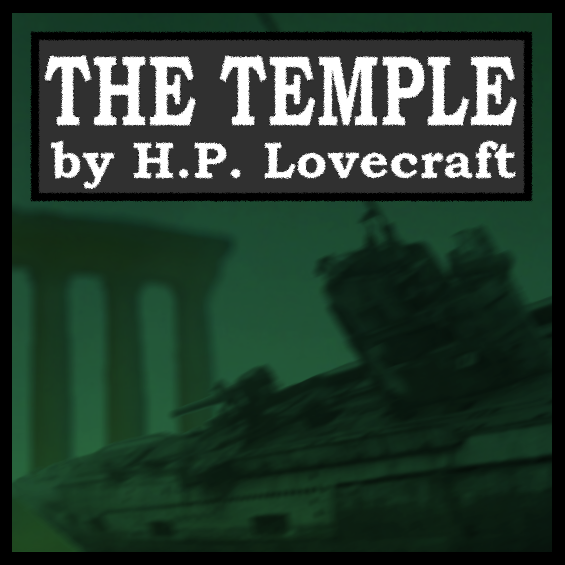
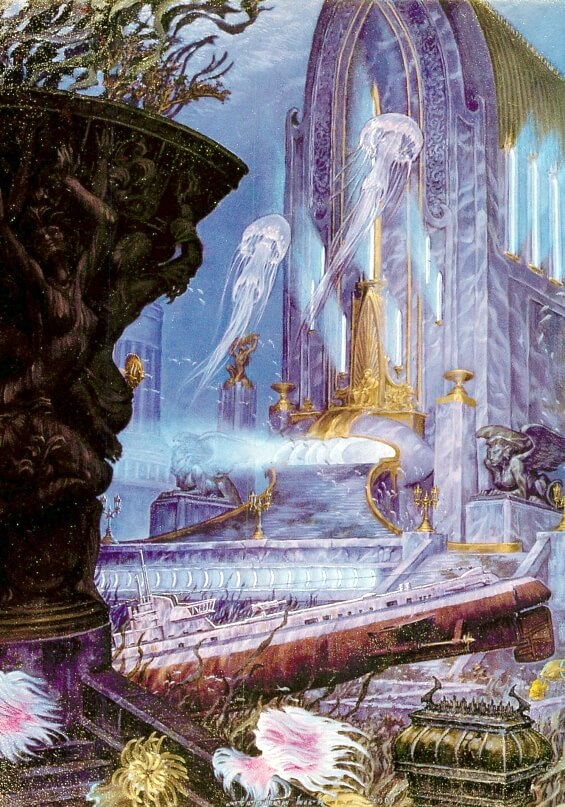
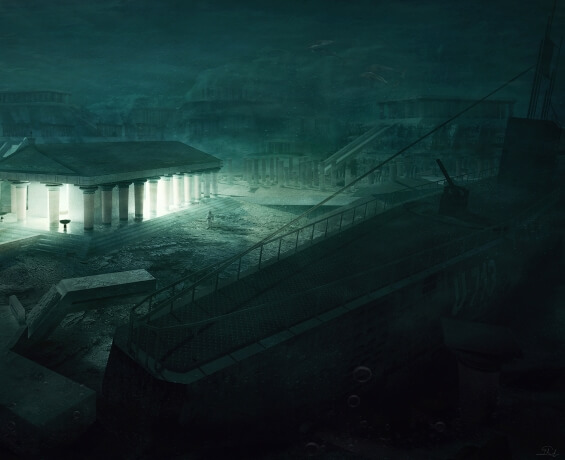
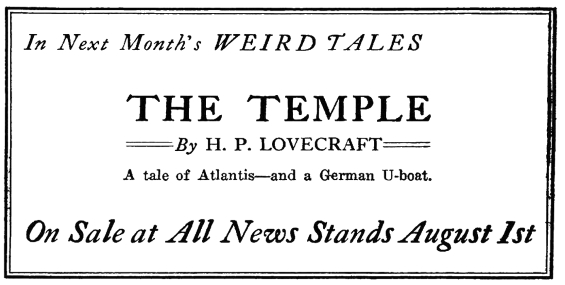
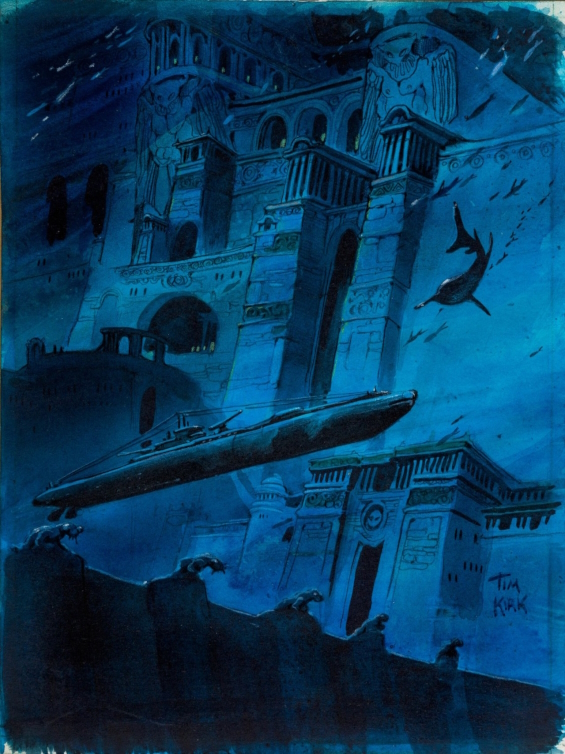
Posted by Jesse Willis